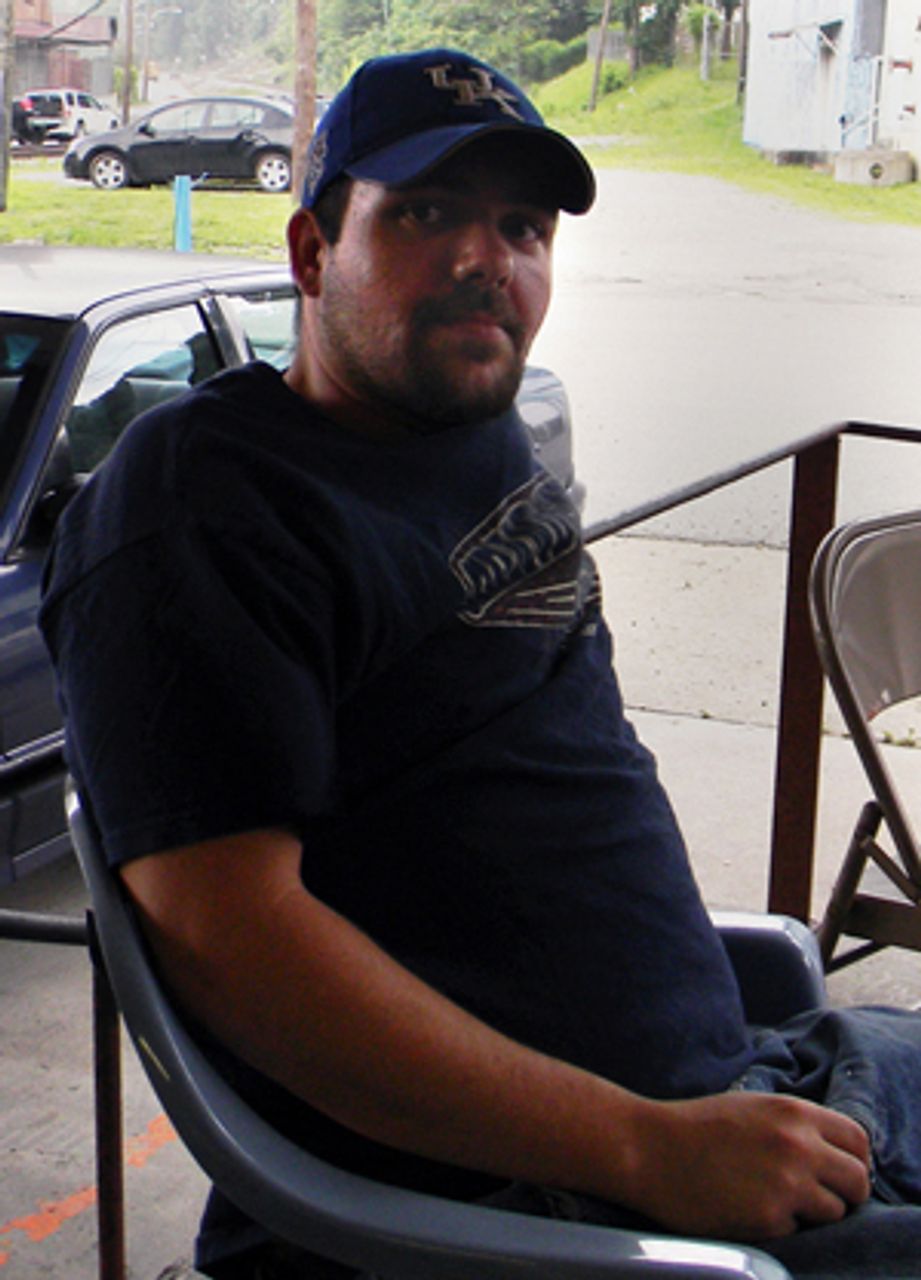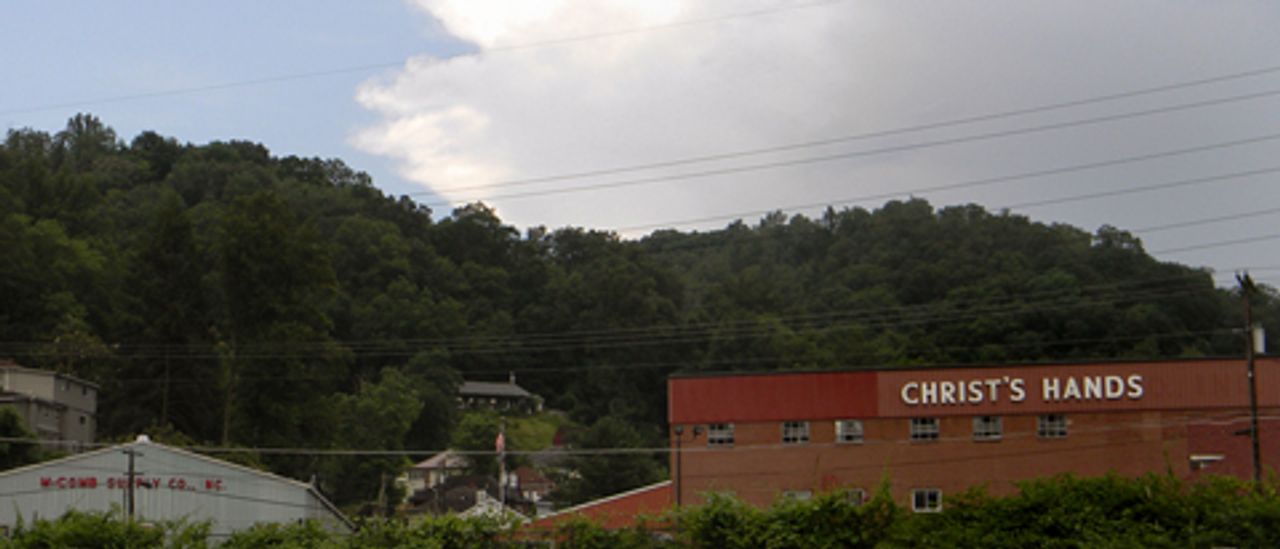John Northern, 28, is an unemployed lumber worker from Leslie County. He is currently homeless, and suffering from bowel cancer, but is desperately seeking work. He spoke with World Socialist Web Site reporters at the Christ’s Hands shelter in Harlan, Kentucky.
 John Northern
John NorthernJohn told the WSWS that he has not been able to find work since the Begley Lumber mill closed two years ago, laying off dozens of workers. He told the WSWS that the mill folded when the housing market collapsed, depressing construction industry demand for lumber. “When the property values went down, everything went down. Then the whole mill shut down. They couldn’t sell logs. Nobody needed lumber to build houses.”
At the same time, John said that his own mortgage collapsed. “The bank took the house, and then somebody burnt it. I was already behind on the mortgage because of work. I can’t find work.
“When I got behind on my mortgage, I borrowed some money off a finance company. I have three kids, so I had to go borrow money to take care of them some kind of way.
“The only work here is in the coal mines. You can get $16 or $17 an hour there, but even small mines can’t afford to pay anybody’s salaries, so they’ve had to cut down on health insurance and everything. The small operators won’t pay health insurance. You get six or seven miles below the ground—health insurance means a whole lot!
“Other jobs aren’t enough to live on. I’ve got applications in everywhere. It seems like if you don’t have a family member running a business or a relative who manages a McDonald’s or something, you aren’t going to find a job.”
After job searches came up empty and the bank was threatening to foreclose on his house, John and his wife started selling marijuana to make ends meet. “You have a lot of people around here with little kids,” he said. “When your kids go crying, your kids go hungry and you need diapers, and you don’t have a job—well, you’re going to find some way to get money.
“We got on food stamps. But $200 is not enough to feed a family of four. You run out well before the end of the month.”
John and his wife were arrested for selling marijuana, and had their children taken away from them. His wife is currently in a rehabilitation center in nearby Evarts, and his mother is caring for the children. “I didn’t want to bring them to the homeless shelter,” he said. Noting that the shelter had recently had its state grant funding cut from $40,000 to $16,000, he added, “They barely can take care of us, let alone kids.”
 Christ’s Hands homeless shelter and soup kitchen in downtown Harlan
Christ’s Hands homeless shelter and soup kitchen in downtown HarlanHe told the WSWS about his experience in the Harlan jail: “I spent two months in jail. The conditions there are terrible. You’re just hungry all the time. They don’t feed the men hardly at all. The best meal I had was two pieces of bread with some ‘sloppy joe’ on it, and three ‘tater wedges.’ That’s the best it gets.”
“I was in a 30-man cell; there were 42 of us in it,” John said. “We were so crowded that some of the men took to sleeping on the picnic tables that they have inside the cell, where the inmates sit at and play cards.”
Conditions like these prevail in many jails across Kentucky, in part because cash-starved local governments receive a per-prisoner subsidy from the state—the more state prisoners a jail can house, the more money the locality receives. Sheriffs are encouraged to operate their jails as profit-making enterprises, cutting corners on outlays such as food, bedding, medical aid, and sanitation.
John said his cancer has worsened swiftly since he lost his job. “I’ve had six surgeries in two years. But I can’t afford to see a doctor. When it gets unbearable, I go down to the emergency room.
“Ever since I’ve been out of jail, I’ve watched probably 20 some people come in down here and get kicked out, or get put in jail or something,” John said. “Everybody gets tired of being broke, and gets out here and tries to make money somehow or another. Drugs mainly. Theft doesn’t occur till everybody gets on the drugs. It’s mainly out of desperation.
“Times around here are so hard right now you can’t do anything. Here at the shelter they’ll feed you and stuff, but there’s times they ain’t got enough money either. I’ve had the law called on me I don’t know how many times. I go to a store and sit and ask for cash, and they call the law on me for panhandling.”
The social crisis in Appalachia: Part 1 | Part 2 | Part 3 | Part 4 | Part 5
Interviews and related material: 1 | 2 | 3 | 4 | 5
Subscribe to the IWA-RFC Newsletter
Get email updates on workers’ struggles and a global perspective from the International Workers Alliance of Rank-and-File Committees.
